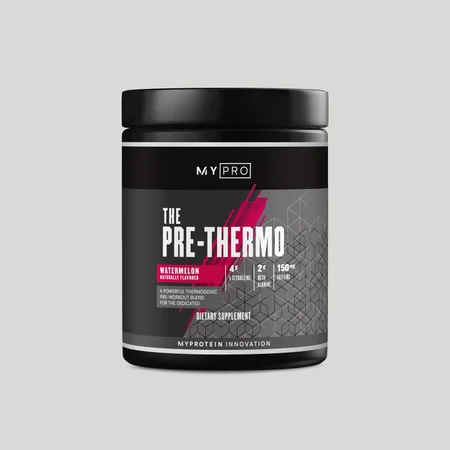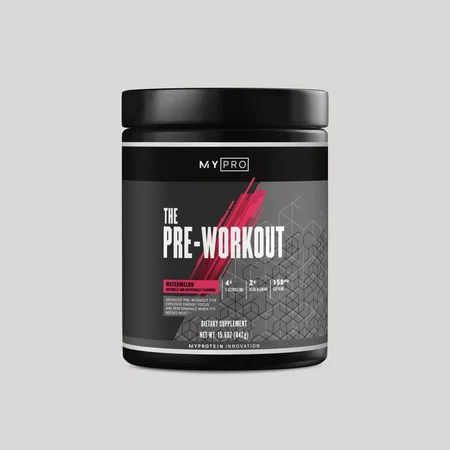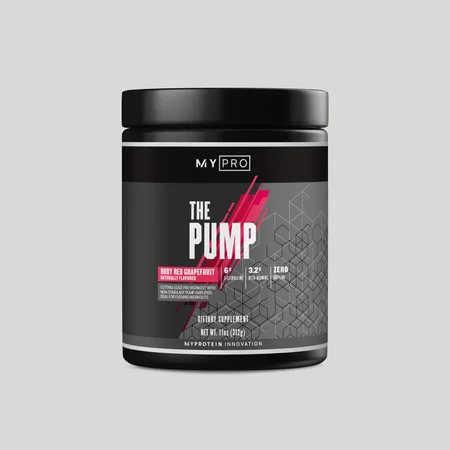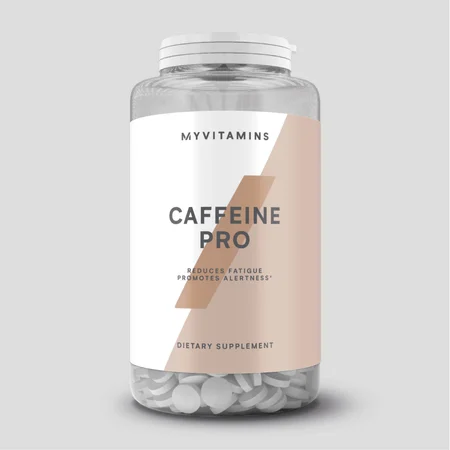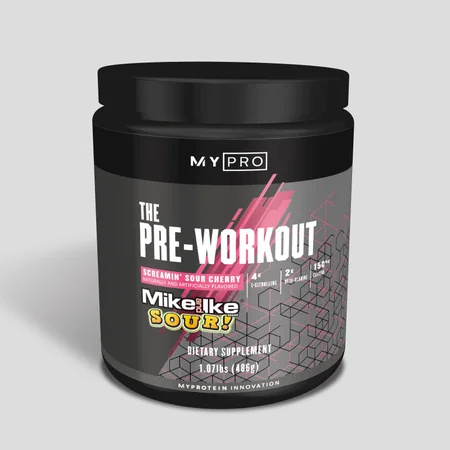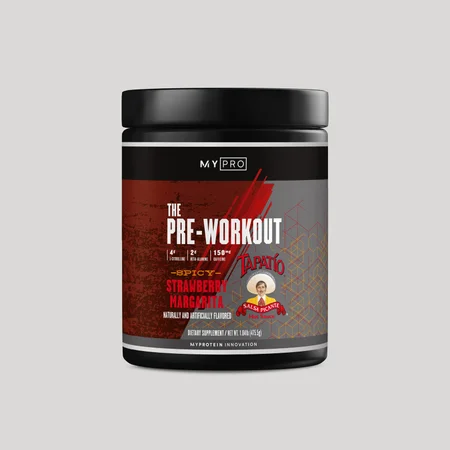
Do you like maximizing your workout before you even walk through the door? We thought so. There are supplements made to set you up with the energy to hit a great workout and aid your recovery, as well as a ton of other benefits. If you don't know about pre-workout, it's time to get to know your new secret weapon. This article will delve into what this supplement does, how it works, its benefits, and when exactly you should be taking it.
If you’re looking to increase your performance during your workouts and see greater changes to your body over time, using pre-workout supplements could help to give you the extra boost you need.
- What is pre-workout?
- What does pre-workout do?
- How does pre-workout work?
- What are the benefits of pre-workout?
- Is pre-workout good for you?
- What are the side effects of pre-workout?
- Key ingredients in pre-workout supplements: exploring their effects
- Choosing the right pre-workout supplement: factors to consider
- When to take pre-workout
- Why is my pre-workout clumpy?
- Can I still use clumpy pre-workout?
- FAQs
What is pre-workout?
A pre-workout is a way to boost your energy and optimize performance during your workout. It typically comes as a powdered supplement that you mix with water. They generally contain combinations of ingredients, making them an easy alternative to taking several different supplements before hitting the gym.
What does pre-workout do?
Although each brand chooses their own ingredients, pre-workout shakes are often made up of caffeine, vitamins, creatine, and other various ingredients to enhance energy and strength.1
The benefit is an increase in performance during anaerobic exercise (like weightlifting) or endurance exercise (like cardio) by giving an energy boost and delaying fatigue.2 Even though the ingredients in different shakes might vary, they all aim to maximize the results of your workout.
How does pre-workout work?
Pre-workouts work by providing you with different nutrients that will improve your exercise performance. This can be through ingredients such as caffeine which can improve your time to fatigue during a workout. Other ingredients such as beta alanine and vitamins can also be added to improve your performance by helping you to feel energized and well-fueled through your workout.
For this reason, a pre-workout is usually taken before a workout to boost your performance and give you a hit of energy.
What are the benefits of pre-workout?
If you’re new to working out and need an energy boost, or have been training for a while and feel like your progress has plateaued, then this shake might be beneficial for you. The benefits of pre-workouts are related to increasing energy, performance, and strength.
Studies have shown short-term increases in lean body mass and lower body strength when taking a pre-workout supplement consistently.2
Often, the combination of ingredients provides greater performance benefits than taking one supplement on its own.2
Caffeine
Caffeine is one of the most common ingredients found in pre-workout shakes, which has been shown to provide benefits such as improvements in muscle power and endurance, without increasing how hard the activity feels (the rate of perceived exertion).3,4 In other words, you’re able to accomplish more in your workout without feeling like you’re pushing yourself harder.
More benefits of caffeine:
Improved performance
One of the main benefits of taking a pre-workout supplement is improved performance from the ability to train harder and longer. Ingredients typically found in pre-workouts can help increase endurance and mental focus.
Boost in concentration
Caffeine is a mental stimulant with studies showing improved mental alertness following consumption. This can make a pre-workout particularly good for skill-based exercises, like technique-focused weightlifting sessions.
Relieves muscular pain
Caffeine is one of the main ingredients in many pain relievers. It’s been shown that caffeine can help alleviate post-workout pain and muscle soreness, meaning you’ll be able to hit the gym just as hard each day.11 This makes caffeine an ideal supplement to take pre-workout.
Improves speed and endurance
Consuming caffeine before a workout can improve both your speed and stamina while making your workout seem easier and less strenuous.11,12
Speeds up heart rate
Since caffeine has an effect on your central nervous system, it could help you by increasing your heart rate and breathing rate.12 This means you can supply your muscles with more oxygen, allowing them to aerobically respire more successfully, increasing output.
Replenishes glycogen stores
Caffeine, when consumed with carbohydrates, has been shown to replenish muscle glycogen stores quickly after exercise.13

Is pre-workout good for you?
Some pre-workouts include vitamin B1 — which can help with cardiovascular function — and vitamin B12 — which can help with energy production.
But pre-workout also typically contains high amounts of caffeine, which can be dangerous in large quantities, so do not exceed the recommended dose.
Caffeine and stim free
Caffeine is recommended for having as a pre-workout, as it can provide a brilliant energy boost to help push you through your workout. A lot of pre-workouts include caffeine alongside other typical pre-workout ingredients, like beta-alanine, B-vitamins, or taurine.
However, there are also stimulant-free pre-workouts, designed using research-backed ingredients to give you the boost you need, without any caffeine.
What are the side effects of pre-workout?
Potential side effects depend on the ingredients in your specific supplement. Typically, caffeine and other energy-boosting compounds could increase your heart rate and blood pressure temporarily, but there’s been no evidence of widespread negative effects.5
Other side effects may include:
Dehydration
Caffeine has been shown to lead to dehydration, as it can have a slight diuretic effect. Therefore, if you’re consuming reasonably high levels of caffeine throughout the day, it’s recommended to increase your water intake to reduce the risk of dehydration. If you take pre-workout caffeine, then you should definitely ensure you keep drinking water throughout your workout.

How Much Water Should I Drink A Day?
It possesses more power than you think....
Insomnia
Since caffeine is a powerful stimulant, it’s fairly evident that it could present some adverse side effects when it comes to the quality of sleep. Depending on the individual, the results can vary. You should therefore be careful when taking pre-workout caffeine in the evening.
Some may not be hindered by caffeine when it comes to sleeping, but for others, it could be an issue. You should moderate your intake if you recognize that it affects you negatively and do not drink caffeinated drinks in the evening or before you go to bed.
Addiction
Caffeine can be very addictive – withdrawal from caffeine can present side effects such as headaches, anxiety, and cravings. These can be prevented by gradually weaning yourself off, lowering your dosage.
Key ingredients in pre-workout supplements: exploring their effects
What is in pre-workout?
Vitamin B
Another category of the common ingredients found in pre-workouts are B vitamins like niacin and vitamin B12. These vitamins play key roles in metabolism and energy.7 They may also contain creatine, a common ergogenic (building) aid, which increases performance in short-duration, high-intensity exercise, and also helps with lean gains when taken consistently.8
Beta Alanine and L-Citrulline
Some pre-workout formulas may also contain beta alanine and L-citrulline, which have both been shown to improve energy in endurance-related exercise.9,10 You’ll find all of these key ingredients in THE Pre-Workout, benefiting both short-duration (strength training) and longer duration (cardio-based) activities.
BCAA
Branched chain amino acids, or BCAAs, are often taken before a workout and are often part of your all-in-one pre-workout supplement. They're usually included as either a single ingredient or as individual amino acids. As building blocks of muscle tissue, amino acids may help to prevent muscle damage and muscle breakdown, as well as improve muscle rebuilding.5 They might also help prevent fatigue, which impacts performance.5
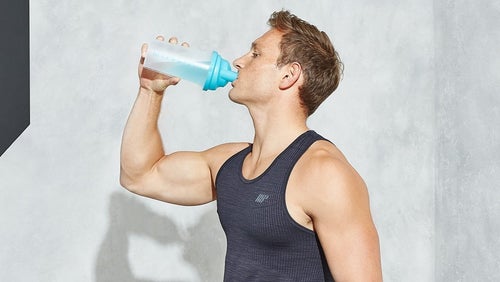
Benefits & Side Effects of BCAA (Branched-Chain Amino Acids)
How could BCAAs help you reach your goals?...
Carbs
Some pre-workout mixes contain carbohydrates (sugar) to top off your available energy stores, while others are sugar and calorie-free. You might decide whether or not you need carbs based on whether you’ve eaten a meal recently or the type of workout you’re planning.
If you’re planning an endurance cardio workout (like running or cycling), the extra carbs can be useful, but if you’re planning on just lifting (anaerobic activity), you probably don’t need the sugar.
Creatine
During explosive exercise, the body uses creatine to make energy. To perform at a high level, your muscles need a good supply of energy so that you can perform harder for longer periods of time.
Being able to take your workout one step further every time can have a compounding effect, meaning reaching your aesthetic and strength goals sooner. These changes have the potential to improve your performance and help you to keep making progress towards your fitness goals.

Creatine HCL vs. Monohydrate | Which Is Better?
What is the difference between creatine HCL and creatine monohydrate, and which ...
L-Glutamine
This is an amino acid, one of the molecules that make up protein. Naturally found in food sources, they can help to repair new muscle. When you work out, your muscles suffer from tiny tears, that when repaired make them stronger. Make sure your stores are filled up and ready for a tough workout.
Vasodilators
When you’re working out, your body is working hard to pump enough oxygen to your muscles to make energy. Vasodilators cause the blood vessels to widen, which means an increased blood flow to the muscles, providing them with more of the nutrients they need to keep you moving. The longer it takes for you to tire, the harder you can push your workout and the greater changes you can make.
Overall, pre-workouts allow you to repeatedly increase your power, strength, and stamina over time. This can lead to more significant changes in lean body mass, loss of fat mass, and a faster metabolism.2
Caffeine
Caffeine is a potent Central Nervous System (CNS) stimulant and has been found to increase mental alertness, cognitive processing, and decision making, particularly when in a state of fatigue or extreme stress.

Choosing the right pre-workout supplement: factors to consider
From stimulant-free to loaded up on caffeine, it’s important that you pick the pre-workout that suits you.
What are the different types of pre workout?
THE Pre-Workout
Fuel your fitness and fight fatigue with THE Pre-Workout. Loaded with 15omg of caffeine to help you power through your workout and help you exercise for longer. Plus, B vitamins and beta-alanine to help you support your goals.
THE Pump
THE Pump is a powerful non-stimulant pre-workout designed to increase performance.
Packed with patented ingredients like Bioperine® and Vaso6™, THE Pump promises to increase blood-flow and endurance in a way that’s smooth and effective.
THE Pre-Workout Thermo
Our powerful thermogenic pre-workout uses Capsimax® chili pepper extract, proven to increase fat burning and calorie expenditure.
This formula will also enhance energy, focus, and performance.
When to take pre-workout
Because caffeine is a staple ingredient and it takes effect in about 30 minutes, the ideal time for you to take your pre-workout supplement is 30-60 minutes before your workout.5 Caffeine has a half-life of between 3 and 7 hours, meaning after this time, half the caffeine can still be in your system.6 This can vary between individuals with some feeling the effects for longer than others. Therefore, caution should be taken when consuming a shake like this in the hours before you go to bed, especially for those who are more sensitive to caffeine.
Having your shake 30-60 minutes before your session gives enough time for the supplement to get into your bloodstream and give you the benefits you’re looking for. THE Pre-Workout is designed to be taken dissolved in water 30 minutes before your workout, which also helps you to stay hydrated.
Although caffeine impacts you immediately, some ingredients like creatine and beta-alanine need time to build up in your body, and are most effective when taken consistently to maintain muscle stores.5 For this reason, regularly supplementing with a pre-workout product will help maximize the benefits and impact of its ingredients.5

How long does it take pre-workout to kick in?
After consumption, caffeine takes about 45-60 minutes to reach peak levels in the bloodstream. If the pre-workout contains beta-alanine, you may experience tingling in your skin after 15 minutes or so.
How long does pre-workout last?
The half-life of caffeine is 4-6 hours, which is the time it takes for the amount of caffeine in your system to reduce by half. Tingling caused by beta-alanine will typically stop after around 90 minutes.
How often should you take pre-workout?
It's best to take pre-workout on the days you're training. Some ingredients, like creatine, need to be supplemented over an extended period to have any effect.
Should beginners take pre-workout?
Pre-workouts can be useful for anyone looking to boost their performance. For beginners, they can be particularly good for getting through a session when you’re not feeling your best, but it’s best not to rely on them too much so early on in your training. Listening to your body, consuming a well-balanced diet, and giving yourself plenty of recovery time are more important when you’re new to training.
Do athletes take pre-workout?
Many athletes take pre-workout supplements to help improve their performance during training or competition. Pre-workout's effect on endurance may make it a useful supplement for a boxer to train harder, a runner to run further, or a weightlifter to do more reps.
Yogis and other fitness enthusiasts may also take pre-workout supplements to help increase their focus and energy during workouts.

Why is my pre-workout clumpy?
Your pre-workout might arrive and seem to be pretty clumpy. But fear not. You don’t need to hit up the customer services department. It’s actually totally normal.
Common pre-workout ingredients including L-Citrulline and glycerol are what are known as hydroscopic ingredients. In easy to understand terms, this basically means these ingredients draw moisture out of the air and can make the pre-workout powder stick together in clumps.
The extent to which you find your pre-workout clumps together can also be affected by the humidity in the factory it was produced in, or the humidity in the area where you live. The more moisture in the air, the more clumps your pre-workout is likely to have.
Is it safe to use clumpy pre workout?
Although it might feel strange, clumpy pre-workout can be expected — especially if you leave your pre-workout in a humid environment — yes, we’re talking about your sweaty gym bag. But if the product is in date then it should be safe to use.
Follow the instructions on the pre-workout packet of how to take your pre-workout and you’ll be fine.
Can I still use clumpy pre-workout?
While it’s still safe to use pre-workout that has gone clumpy in the tub, there are some preventative measures you can take if you’d rather avoid clumping altogether.
- Avoid leaving your pre-workout in your car for long periods. The moisture in the air of a car that gets cold and then gets hot and vice versa can cause the pre-workout to clump.
- Avoid leaving your pre-workout in a moist area like your gym bag or on the side in your kitchen. To stop clumping, it’s best to store your pre-workout in a cool, dry place.
Can you keep pre-workout in the freezer to stop clumps?
TikTok is full of people providing their own solutions to what helps them to avoid clumps in their pre-workout. And one of the most common solutions is to keep your pre-workout in the freezer. This makes sense, the cold environment helps to avoid any moisture building up in the powder.
FAQs
When should I take pre-workout?
This supplement is best taken between 30 and 60 minutes before your workout.
What is pre-workout?
These supplements are usually a combination of ingredients aimed to boost your energy and increase your performance during workouts.
What does pre-workout contain?
Pre-workouts commonly contain caffeine, vitamin B, beta-alanine, citrulline malate, creatine, L-Glutamine, and vasodilator ingredients.
What are the benefits of pre-workout?
The main benefits of pre-workout include increases in performance and strength. Studies have shown short term increases in lean body mass and lower body strength when supplementing consistently.
What are the side effects of pre-workout?
Potential side effects depend on the ingredients of your pre-workout. The common ingredient caffeine can cause nausea, headaches, and heart palpitations for those who are caffeine-sensitive.

Take Home Message
Pre-workout supplements are designed to help increase your performance by boosting energy, power, and stamina. They’re generally taken about half an hour before your workout, and the benefits include improved muscle strength, cognition, lean gains, and endurance. To better select the optimal shake for before your workout, consider what your goals are.
Taking a pre-workout consistently can help maximize its impact on your performance. They can help you feel more confident in taking the next step in your training sessions and provide the boost you need to reach your peak performance level and continue to advance your physical abilities.
READ THESE NEXT:

Best Weight Gain Supplements For Women
And tasty recipes to help you reach your goal....
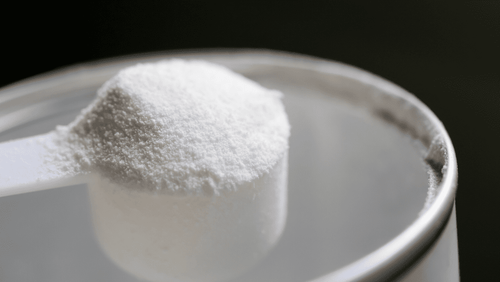
What Is Collagen Protein | What Are The Benefits?
Could collagen be right for you?...

Amino Acids: Benefits & Best Supplements To Take
Nutritionist answers all your amino acids questions....
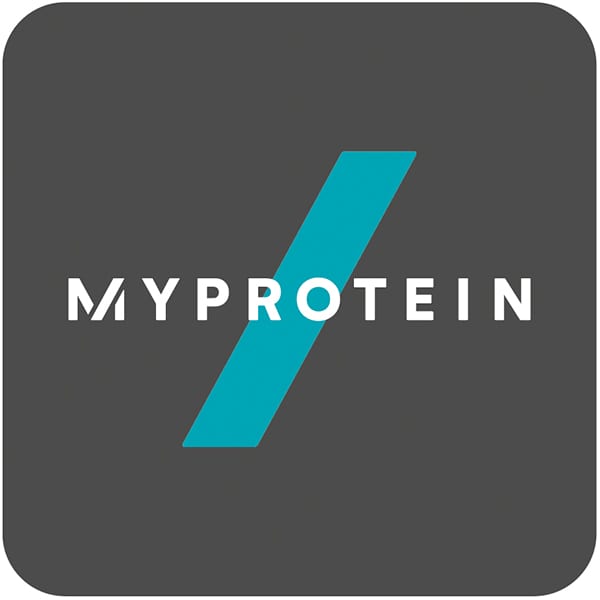
- Martinez, N., Campbell, B., Franek, M., Buchanan, L., & Colquhoun, R. (2016). The effect of acute pre-workout supplementation on power and strength performance. Journal of the International Society of Sports Nutrition, 13(1), 29.
- Outlaw, J. J., Wilborn, C. D., Smith-Ryan, A. E., Hayward, S. E., Urbina, S. L., Taylor, L. W., & Foster, C. A. (2014). Acute effects of a commercially-available pre-workout supplement on markers of training: a double-blind study. Journal of the International Society of Sports Nutrition, 11(1), 40.
- Del Coso, J., Salinero, J. J., González-Millán, C., Abián-Vicén, J., & Pérez-González, B. (2012). Dose response effects of a caffeine-containing energy drink on muscle performance: a repeated measures design. Journal of the International Society of Sports Nutrition, 9(1), 21.
- López-González, L. M., Sánchez-Oliver, A. J., Mata, F., Jodra, P., Antonio, J., & Domínguez, R. (2018). Acute caffeine supplementation in combat sports: a systematic review. Journal of the international society of sports nutrition, 15(1), 60.
- Harty, P. S., Zabriskie, H. A., Erickson, J. L., Molling, P. E., Kerksick, C. M., & Jagim, A. R. (2018). Multi-ingredient pre-workout supplements, safety implications, and performance outcomes: a brief review. Journal of the International Society of Sports Nutrition, 15(1), 41.
- US National Library of Medicine. (2015, April 2). Health Topics: B Vitamins. Retrieved from https://medlineplus.gov/bvitamins.html
- Kreider, R. B., Kalman, D. S., Antonio, J., Ziegenfuss, T. N., Wildman, R., Collins, R., … & Lopez, H. L. (2017). International Society of Sports Nutrition position stand: safety and efficacy of creatine supplementation in exercise, sport, and medicine. Journal of the International Society of Sports Nutrition, 14(1), 18.
- Rosas, F., Ramírez-Campillo, R., Martínez, C., Caniuqueo, A., Cañas-Jamet, R., McCrudden, E., … & Loturco, I. (2017). Effects of plyometric training and beta-alanine supplementation on maximal-intensity exercise and endurance in female soccer players. Journal of human kinetics, 58(1), 99-109.
- Botchlett, R., Lawler, J. M., & Wu, G. (2019). L-Arginine and l-citrulline in sports nutrition and health. In Nutrition And Enhanced Sports Performance(pp. 645-652). Academic Press.
- Botchlett, R., Lawler, J. M., & Wu, G. (2019). L-Arginine and l-citrulline in sports nutrition and health. In Nutrition And Enhanced Sports Performance(pp. 645-652). Academic Press.
- Goldstein, E. R., Ziegenfuss, T., Kalman, D., Kreider, R., Campbell, B., Wilborn, C., … & Antonio, J. (2010). International society of sports nutrition position stand: caffeine and performance. Journal of the International Society of Sports Nutrition, 7(1), 1-15.
- Rauh, R., Burkert, M., Siepmann, M., & Mueck‐Weymann, M. (2006). Acute effects of caffeine on heart rate variability in habitual caffeine consumers. Clinical physiology and functional imaging, 26(3), 163-166.
- Pedersen DJ, Lessard SJ, Coffey VG, Churchley EG, Wootton AM, Ng T, Watt MJ, Hawley JA: High rate of muscle glycogen resynthesis after exhaustive exercise when carbohydrate is coingested with caffeine. J Appl Physiol. 2008, 105: 7-13. 10.1152/japplphysiol.01121.2007.
